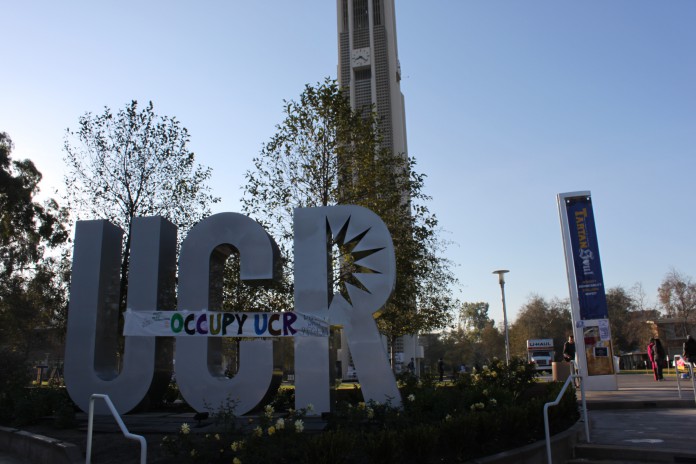Annalise Domenighini
News Editor
The public comment session of the second day of the University of California Regents meeting ended in a demonstration by students and community members that disrupted the meeting, forcing Regents and other officials to exit to another room due to safety concerns.
Public comment began around 8:40 a.m. with various speakers coming forward to voice their disapproval of what they see as the privatization of the University of California system. Each speaker was allotted one minute of time to voice their complaints and issues with the doing of the Regents, though few speakers stayed within the time allotment.
“I think you’re doing the bare minimum of your job, which I’m not going to fault you for” Washington, another of the various student speakers said. “I’m asking you to step up like we had to step up, I’m asking you to make some sacrifices like we have.”
Peter Matthews, professor of political science at Cyprus College, stood up to advocate the regents support the tax oil for education initiative as a way to garner further funds from outside sources to support the University of California’s budget.
The stance that throughout the tuition hikes and budget cuts, the regents continue to profit from student and faculty was a common theme in many public comment. Many speakers felt the regents are out of touch, and are unable to imagine what it is like to be in the student’s shoes who bear the brunt of so many hikes and cuts
“I don’t think you understand what it feels like to graduate from college and have that payment due, to be unemployed and not be prepared” said R. Hernandez, commenting on the outrage felt at her inability to find a good job and pay off loans because of the cost of tuition.
“I’m concerned about issues of transparency,” said Ahmed Mostafa, University of California Santa Barbara Associated Students external vice president of statewide affairs, concerned about issues of monetary spending and the location of meetings. “Why does UCSB have to travel to these meetings?”
Sienna Davis, a student at University of California San Diego, voiced concerns over the small percentage of people of color on her campus.
“I don’t think you’re trying to help me out, I don’t think people in my community can come to this school [UCSD],” Davis said. “If you can get money for an art project, you can get money for students of color.”
The one-minute time allotment for public comment was frustrating for many speakers who had more to say, and some began to yell at the Regents that it was unfair, they should be given more time to speak, or that because of the time limit the Regents were not actually listening.
“Despite what a lot of you say, we do care” said Chairwoman Sherry Lansing, in response to protests that regents weren’t listening or weren’t letting people finish. “I listened to you I would ask you to listen back.”
Once the regents had allowed the last speaker to speak, students and community members stood up, grabbed hands or locked arms and began to protest the way the University system was treating them and spending their money. While Lansing asked they remain seated and quiet, as the board was about to discuss proposals for alternative revenue sources as a way to reduce the cost of tuition, the protestors refused.
Regents and other officials were then escorted out of the room into a smaller room while they waited for students, who had begun to conduct a general assembly in an Occupy fashion for University issues.
The meeting resumed at 10:47 a.m., roughly an hour and a half after the protesters had first begun the sit-in. Due to the protest, less time was given to present and discuss alternative sources of revenue.











